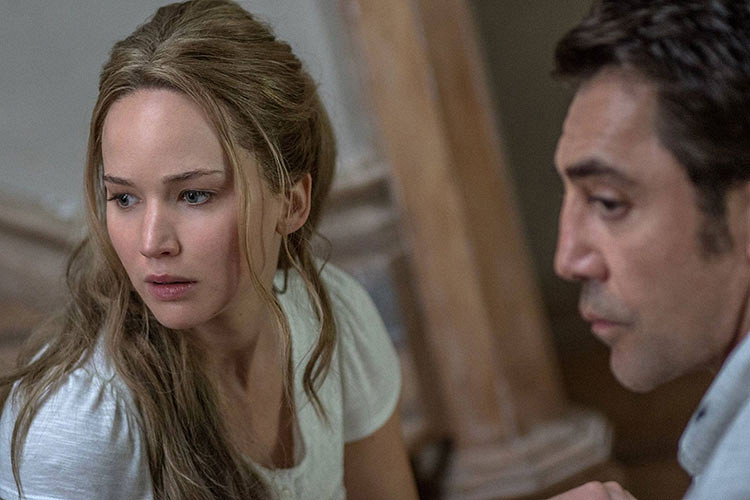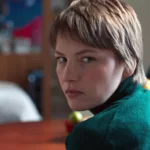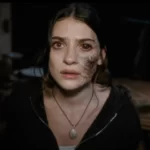mother!
Directed by Darren Aronofsky
Starring Jennifer Lawrence, Javier Bardem, Michelle Pfeiffer, Ed Harris, and Kristen Wiig
Reviewed by Michael Dalton
[rating: 3/5]
As the audience entered the cinema at the Toronto International Film Festival for a screening of Darren Aronofsky’s mother!, they were handed, on tastefully decorated paper, the following:
mother’s prayer
Our mother who art underfoot,
hallowed be thy names,
thy seasons come, thy will be done,
within us as around us,
thank you for our daily bread, our water, our air,
and our lives and so much beauty;
lead us not into selfish craving and the destructions
that are the hungers of the glutted,
but deliver us from wanton consumption
of thy vast but finite bounty,
for thine is the only sphere of life we know,
and the power and the glory, forever and ever,
amen
Adapted by Rebecca Solnit
Cryptic and biblical, it no doubt added texture to what they then bore witness to. Surely every audience in the world should be granted the same courtesy? People will be scratching their noggins and, media feeds withstanding, only the most knowing (or those who pretend to be) would grasp the film’s true meaning. mother! is a deliberately strange and convoluted film, deranged and audacious. In a recent interview when asked about the negative response the film received at The Venice Film Festival, Aronofsky said, “I don’t care if they cheer or they freaking boo, as long as they react. This film is like tossing a hand grenade into pop culture”. People will describe it as “an experience”, just as they did with A Clockwork Orange, The Exorcist, Antichrist, and even the director’s first major success, Requiem For A Dream. But, it is an instant cult classic, charged up with shocking visuals (Aronofsky remixes the claustrophobic horrors of The Exterminating Angel, Rosemary’s Baby, and Repulsion shamelessly) and nightmare imagery that would leave Godard quivering.
Still, regardless of your reaction, I doubt, even with Kathryn Bigelow’s explosive Detroit still waiting in the wings, you’ll see a more committed performance this year than the one Jennifer Lawrence delivers. Shattering and heartbreaking, Lawrence’s work here makes all she’s done before seem like child’s play. Her appeal has always escaped me, even with that husky voice and come hither body. She always seemed just another “It Girl” who lucked into a successful franchise and became a pop culture heroine but, in the title role of Aronofsky’s behemoth, she astounds. With her face often filling the screen, he keeps the camera close to her, basking in her innocence so that when he launches his full throttle attack, we’ll be broken along with her. It’s a cheat of an approach (manipulative seems too small a word) but the final result is a movie so extreme that it leaves only two avenues for audience reaction. Two women exited the screening I attended laughing hysterically while the majority sat mystified and spellbound.
It tells the story of a childless husband and wife who live in a remote country home. Now restored following its destruction from a fire, the wife, throughout the course of the film, must deal with two cavalcades of unexpected and very unpleasant guests. On both occasions, the house is left destroyed. Aronofsky, who also wrote the screenplay, has made it clear that biblical tales are the foundation. To cloak such an approach (a mystery in itself), the characters have no specific names. Lawrence represents not only our mothers but homes too, both of which we continually disregard without thought. Javier Bardem, as her alternately distant and attentive husband, represents God (who giveth and taketh away), Michelle Pfeiffer and Ed Harris as the leading vulgarians stand in for Adam and Eve, their feuding sons are Cain and Abel, and the seething masses (among them a psychotic, grinning Kristen Wiig) who wreck the dwelling are Us.
It begins with a woman’s face, burnt and surrounded by flames. The house, now a shell of ashes, then magically restores itself to perfection and from a bed emerges mother. She moves about the home, gazing across the endless fields, looking for her husband, a blocked poet, who seems to appear out of nowhere while the walls pulsate and a bloodstain (it resembles a vagina) on the floorboards grows bigger. While in broad terms (perhaps too broad) the metaphorical elements form a neat parallel, it is the aggressive onslaught that will have you shifting uneasily. Did I like it? No. Did I admire it? Yes. Did I marvel? Absolutely.




